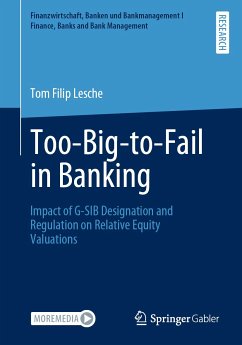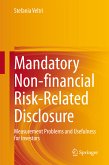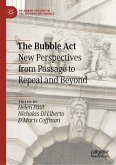This book provides a comprehensive summary of the latest academic research on the important topic of too-big-to-fail (TBTF) in banking. It explains TBTF from various perspectives including the range of regulatory measures proposed to counter TBTF, most notably the globally accepted regulation of global-systemically important banks (G-SIBs) and its main tool of capital surcharges. The empirical analysis quantifies the shareholder value of the G-SIB attribution by using quarterly observations from more than 750 global banks between Q2 2008 and Q3 2015. The main finding is that G-SIBs are confronted with a substantial relative valuation discount compared to non-G-SIBs. From the end of 2011 until the end of 2015, a stable discount of 0.6x-0.8x price-to-tangible common equity (P/TCE) is statistically highly significant. The results suggest that the G-SIB designation effect, which positively impacts G-SIBs' share prices because of funding benefits from IGGs, is dominated by the regulatory G-SIB burden effect, which negatively impacts G-SIBs' share prices because of lower profitability due to capital surcharges and other regulatory requirements placed on G-SIBs. The findings re-open the debate about whether breaking up G-SIBs would unlock shareholder value and whether G-SIBs are regulated efficiently.
About the Author
Dr. Tom Filip Lesche is a venture capitalist investing into financial technology companies. Previously he was an investment banker advising financial institutions on capital markets and M&A transactions.
Dieser Download kann aus rechtlichen Gründen nur mit Rechnungsadresse in A, B, BG, CY, CZ, D, DK, EW, E, FIN, F, GR, HR, H, IRL, I, LT, L, LR, M, NL, PL, P, R, S, SLO, SK ausgeliefert werden.









